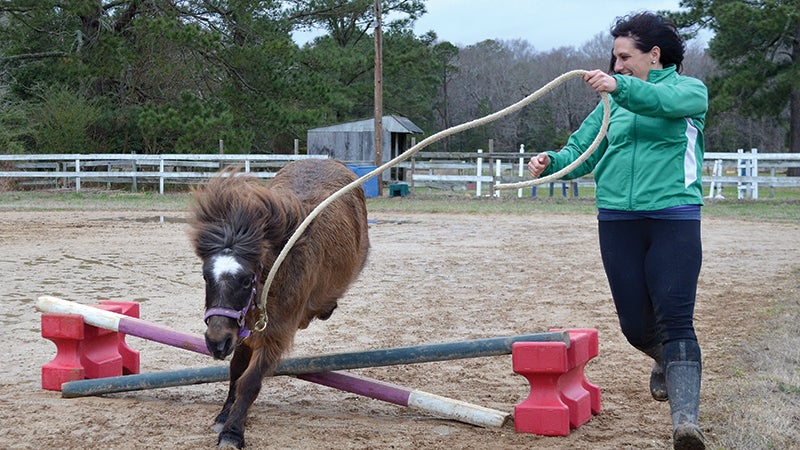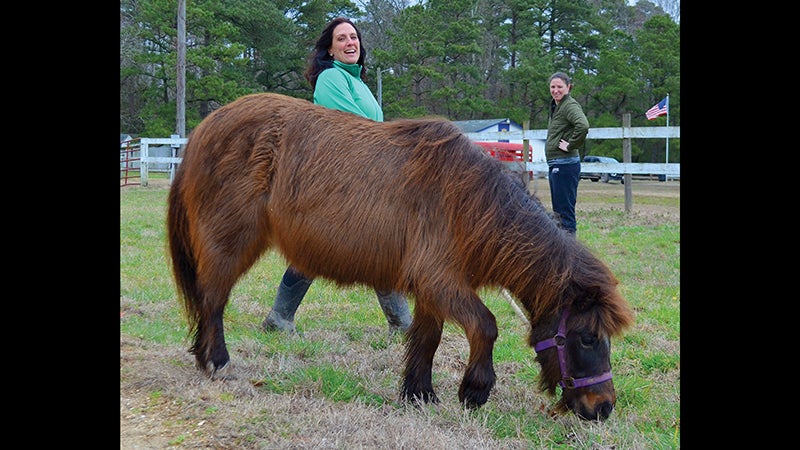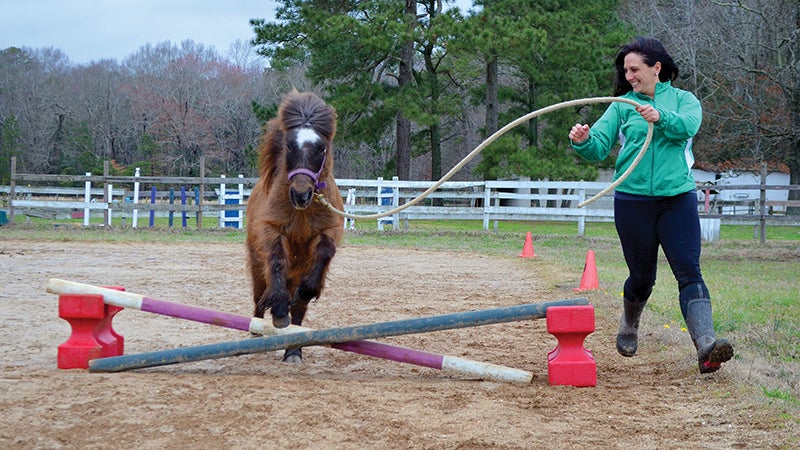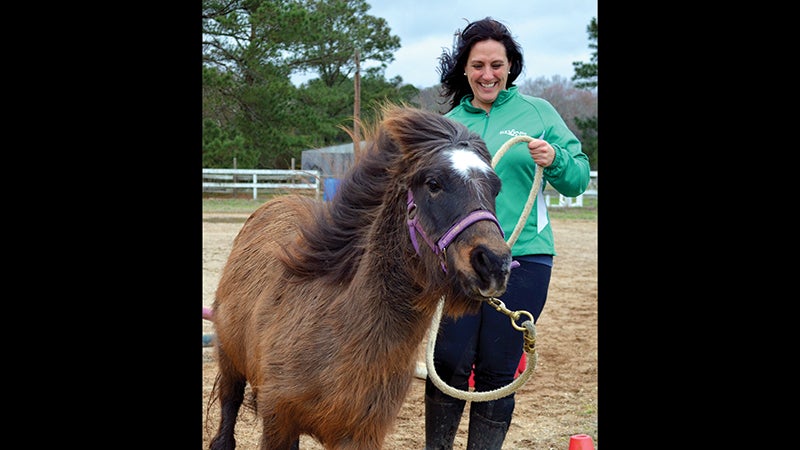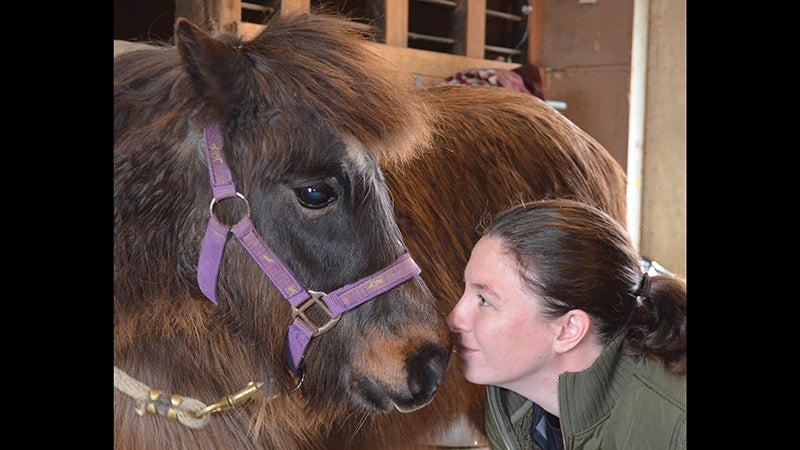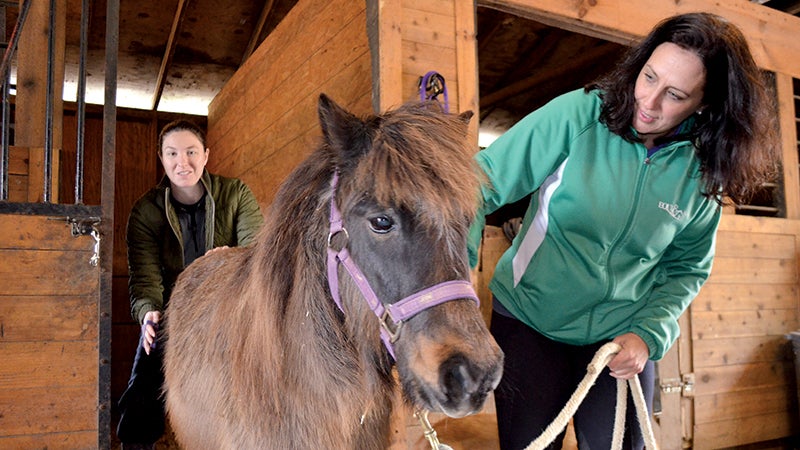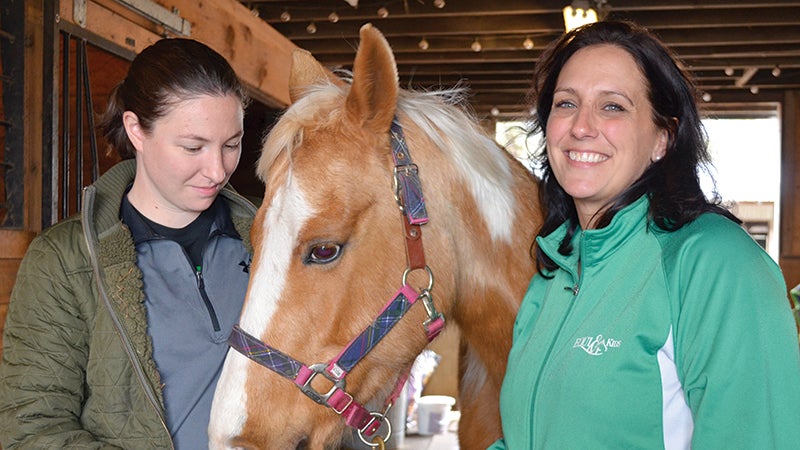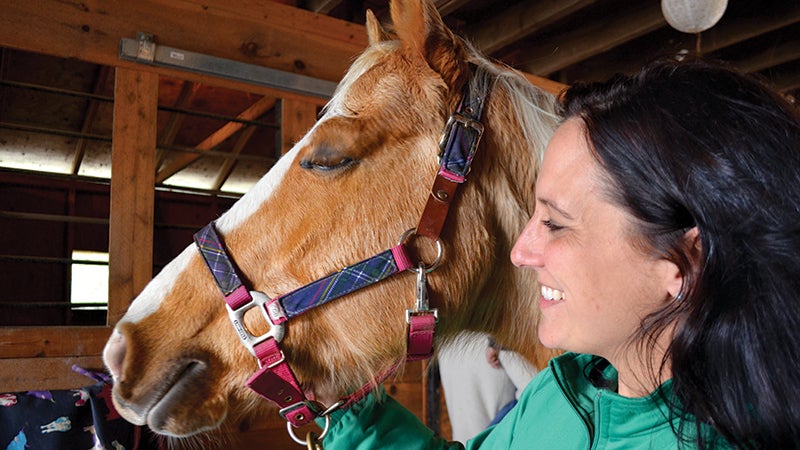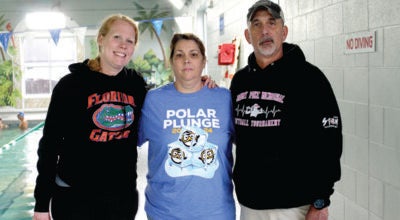Horses ‘hold space’ for clients
Published 6:17 pm Wednesday, August 26, 2020
|
Getting your Trinity Audio player ready...
|
On a weekday back in February, Cocoa enjoyed a walk around the arena at Fox Hollow Farm on Kings Fork Road. The brown pony was led by Melanie Huss, owner of Sully’s Run, the Equine Assisted Psychotherapy program.
Cocoa is a pony in her mid-20s, Huss estimated, weighing at about 600 pounds. She’s a small, friendly horse that Huss purchased at an estate sale in Richmond about five years ago. Now, Cocoa is her “main” therapy horse.
“I went up there to buy a trailer and I came back with a trailer and a pony,” Huss said with a smile.
Sully’s Run Equine Services LLC is an EAP program that serves clients at Fox Hollow Farm, and also at the EQUI-Kids Therapeutic Riding program in Virginia Beach. The program moved from Carrsville to this larger Suffolk facility in November 2019.
“We are a rapidly growing practice and needed to expand to a larger facility,” she said.
Sully’s Run currently serves more than 40 clients using the Eagala model. According to the website eagala.org, this model is a team approach that involves a licensed and credentialed mental health professional, a qualified equine specialist, and the client working together with horses.
Huss explained most of their clients did not have much success with traditional therapy, and so rather than talking about deeply personal topics in a room setting, they’re able to instead express themselves outside with the horses.
“Sometimes we might spend some time brushing a horse while catching up on how the client’s week has gone. The reason why this works is because horses are herd/prey animals,” Huss wrote. “This means they have their own social cues and nonverbal communication.”
Horses, according to Huss, have a heightened sense of their surroundings, and when clients sometimes get frustrated during their sessions, the horses pick up on their emotions. It’s another aspect of EAP that helps the clients process their feelings.
“I think it gives them just the ability to see from a distance how they’re responding to things,” she said in the stables at Fox Hollow Farm back in February, using anxiety as an example. “Let’s say I’m having this feeling and I’m not quite sure what it is, and I might not be sure how that’s affecting people around me or how it’s affecting things in my life. This gives me the ability to say, ‘Oh look, even this horse is picking up on that.’ Sometimes we get those kind-of ‘a-ha’ moments while they’re out there.”
Her clients range from 4 years old up to 67, and span a wide variety of things they are working on in their therapy. EAP therapy is very hands-on, but no actual horseback riding is involved. Instead, Huss will help client set goals for themselves, and to represent those goals, she will ask them to build something interactive for the horse.
“I ask them to build something to represent their goals, however it has to allow the horse to go in, around, over or under (it),” she wrote. Every object in the arena is a potential personal symbol for something in their lives.”
“I always think back to a time when a client used cones to represent family members,” she continued. “The horse walked up (to) the cone, picked it up and tossed it. I mentioned to the client the horse’s actions, and his response was something along the lines of, ‘Oh yeah, well that was my brother and I don’t like him anyways.’”
Clients will also do art therapy in what’s called “Art with Horses.” The client will paint on the horse, including their hooves. When that client’s therapy with Sully’s Run is finished, they’re able to take “hoof prints” with them as “transitional objects,” which represent the tools and skills learned from their sessions, Huss said, and serve as a reflection of the progress they’ve made.
Clients will also sometimes use sticky tabs to illustrate where it’s safe and not safe to move around the horse, which the team then relates to the client’s personal safety in their own lives.
In the Fox Hollow Farm stables back in February, Hannah Glassman, who holds a Master of Social Work degree, referred to “emotional safety,” or that feeling of being able to be vulnerable or emotional in a safe space.
Glassman has been in the field of psychotherapy for three years, and has been working with Huss at Sully’s Run for about three months, as of April. She said that one of the distinct advantages of using horses in therapy is their ability to “hold space.”
“Say someone is just pouring their heart out to you and they are in so much pain,” Glassman said, and all you can do to help them is be with them and validate what they’re experiencing. Horses are fantastic at doing that. So not only do we get to hold space for the client, the horses hold space, and that is a unique opportunity you don’t get in traditional therapy.”


